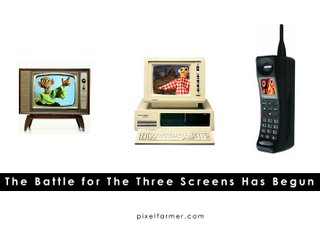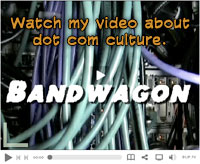T-Commerce, Digital TV and the Digitization of Content
 In one year, your old TV won't work anymore. Broadcast is going digital. This is the end of the TV antenna.
In one year, your old TV won't work anymore. Broadcast is going digital. This is the end of the TV antenna.At midnight on February 17, 2009, all full-power television stations in the United States will stop broadcasting in analog and switch to 100% digital broadcasting. Digital broadcasting promises to provide a clearer picture and more programming options and will free up airwaves for use by emergency responders.
Learn the details from the US Department of Commerce at DTV2009.gov. More info at PC Mag.
We've seen many buzzwords develop from this impending switch-over. One such word makes me simultaneously excited and terrified. T-commerce is the merging of remote-control ease-of-use boob tubes with the instant economic advantages of online ecommerce.
 What does this mean for advertisers and the economics of television broadcasting? Accenture, the global technology consultancy, has produced a detailed study on the subject. I actually think it is great news for digital content producers and designers.
What does this mean for advertisers and the economics of television broadcasting? Accenture, the global technology consultancy, has produced a detailed study on the subject. I actually think it is great news for digital content producers and designers."The findings of our Global Digital Advertising Study 2007 represent a resounding call to action for participants throughout the advertising value chain. The survey also shows that the challenges facing them should not be taken lightly. Change is coming, and businesses will have to invest and change radically to get in or to stay in the game. But Accenture believes that the rewards will justify the effort. The long-term future of the advertising business — if we will even be calling it that a decade from now — is bright."
Labels: digital economy, Todd+Tibbetts, TV+Video









